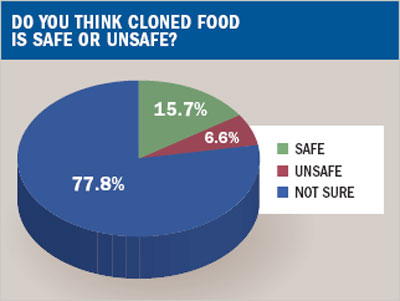The food industry is
taking consumers’ desires for healthier food to heart, working hard
on new formulations and trying to find the best way to communicate their
benefits.
Packagers strive to make food healthier-and let people know
The food industry is taking consumers’ desires for healthier food to heart, working hard on new formulations and trying to find the best way to communicate their benefits.A recent membership survey by the Grocery Manufacturers Association showed that 92% of respondents said they are either introducing new products or reformulating existing products with fewer calories and/or negative nutrients like salt, sugar, saturated fats and trans fats. The GMA said more than 10,000 products with such nutritional benefits have reached store shelves in the last five years. The survey was based on responses from 49 companies that, collectively, have about $250 billion in annual sales.
Once a healthy (or healthier) product is ready, food processors have to find a way to announce it on the label. According to recent extensive research by consumer scientists at Unilever, the best way to do this is to keep the message as simple as possible.
In the journal Appetite, the Unilever researchers reported on a study involving 2,406 consumers from the United Kingdom, Germany, Italy and the Netherlands. The respondents were asked to evaluate different nutritional ratings systems in terms of comprehensibility and efficacy.
The study found that the simplest system, the Healthier Choice Tick-a checkmark symbol, originating in New Zealand-was the most effective in terms of communicating with consumers quickly. The more complicated systems, such as “multiple traffic light” or “wheel of health” formats that gave detailed information about specific nutrients, were found to be just as consumer-friendly, but they took almost 10 seconds more for consumers to evaluate. Since the average consumer devoted little time to evaluating individual products during grocery shopping, the study concluded that front-of-package nutritional information should be as simple as possible.

Poll: most uncertain about cloned food
An overwhelming majority of consumers responding to a recent poll are unsure about the safety of cloned food, with only about 16% saying they believe it is safe.The poll, by Clear Seas Research, a sister organization of Food & Beverage Packaging, showed 77.8% of respondents saying they were unsure about food from cloned animals, which was given the green light in January by the Food and Drug Administration. Another 6.6% said they believed food from clones is unsafe, while only 15.7% believed it to be safe.
The Clear Seas poll also collected comments from respondents:
Positive: “We have all been eating cloned fruits and vegetables and grains and other ‘non-alive’ foods for many years.”
Uncertain: “The fact that this has FDA approval does not automatically give me confidence that it’s a good thing. Too many things have been approved by the FDA that turned out to be not so good.”
Negative:“With all the problems going on with food these days, what is safe?”
Clear Seas Research
248-786-1625;
www.clearseasresearch.com
